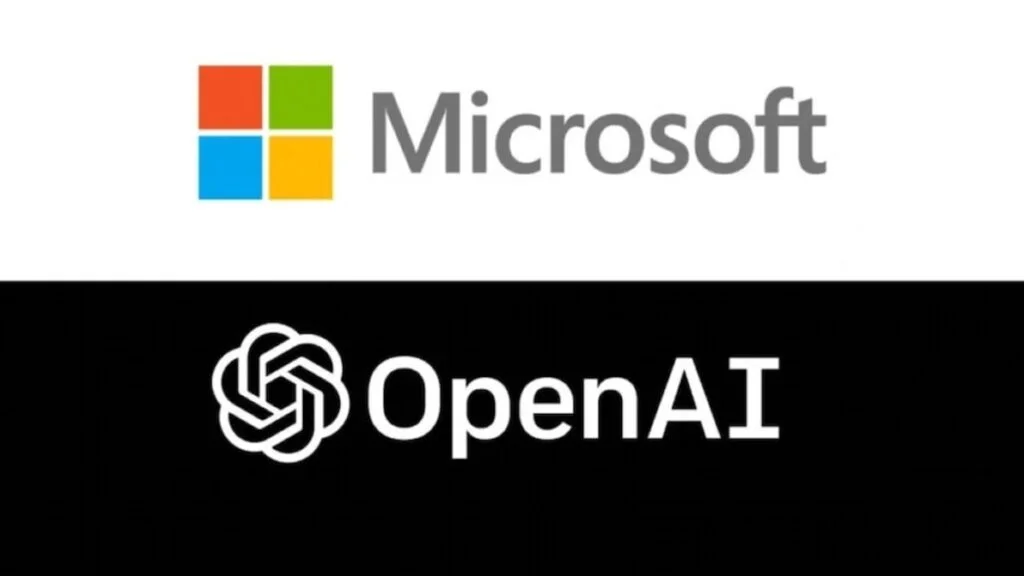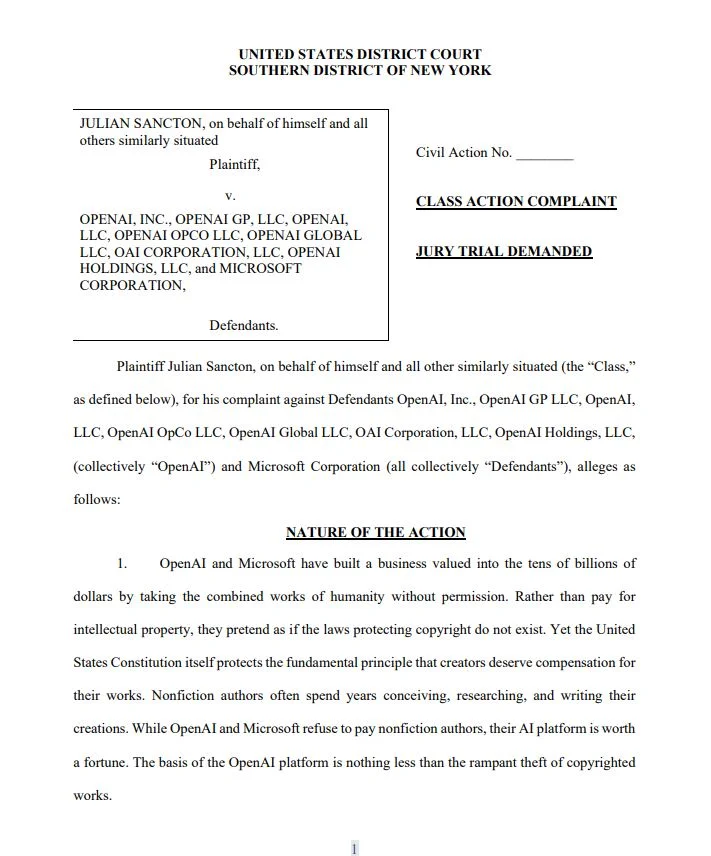OpenAI and Microsoft are confronting a new legal challenge as they are being sued over allegations of misusing nonfiction authors’ work to train artificial intelligence models.

In order to train its large language models to respond to human text prompts, OpenAI reportedly used tens of thousands of nonfiction books without consent, according to Sancton’s complaint. In a federal court in New York, the writer and editor of Hollywood Reporter is spearheading a proposed class-action lawsuit.
Authors John Grisham, Jonathan Franzen, and George R.R. Martin are among the copyright owners who have filed many lawsuits against OpenAI and other tech companies. The alleged exploitation of their work to train AI systems is the subject of the claims. The businesses in question have denied the allegations.

The focus of Sancton’s claim is Microsoft’s creation of generative pre-trained transformer-based technology as well as its role in producing unauthorized copies of authors’ works for training data.
Sancton also charges Microsoft with knowing about OpenAI’s indiscriminate internet crawling for copyright-protected content. Microsoft made an unusual hiring of Sam Altman to lead its new AI group following his dismissal from OpenAI, coinciding with the lawsuit.
Unexpectedly, on November 22, OpenAI revealed a new deal in which Altman will take over as CEO. The corporation officially confirmed the deal through a message on its official X (formerly Twitter) account.
While Microsoft has introduced several products connected with ChatGPT, it has mostly avoided attention, even though OpenAI is the target of many copyright infringement lawsuits.
Sancton’s lawsuit is the first in which a writer has named Microsoft as a defendant and sued OpenAI. Microsoft has integrated OpenAI’s systems into its portfolio of products after making significant investments in the AI startup itself.
According to Sancton’s lawsuit, OpenAI trained its GPT big language models using nonfiction literature, including his book Madhouse at the End of the Earth.
The case holds Microsoft liable for copyright infringement by claiming that the business had a significant role in model creation. Sancton is requesting a court order to stop the alleged infringement in addition to unspecified monetary damages.
